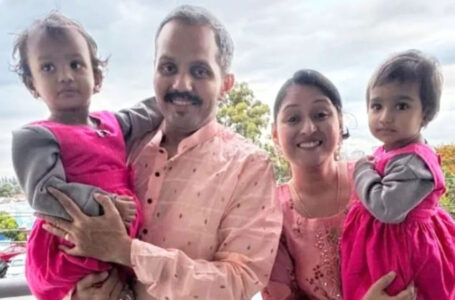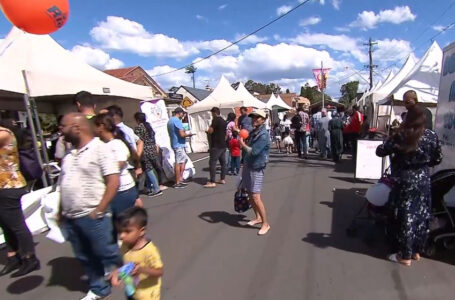Home and Away

Stepping out of the Melbourne’s TullamarineAirport one clear morning, I found myself shaking out of a reverie. The eight-hour-long flight from Singapore broke my dreamscape. I was now in one of the busiest cities in Australia, about to be added to the Indian diaspora that calls this vast continent home. Some come here in search of jobs; some come to study; some for a better living. I, a26-year-old Indian woman, came because I got married to an NRI.
I took some time to absorb the first sights and sounds of my to-be home. My step was a little heavy, there was sweat on my forehead, my stomach was knotted.Until now, mention of Australiahad broughtforth to my minds images of a developed nation, dominated by white skinned foreigners and an alien culture. Now it struck me suddenly that I wouldshortly be walking and working with this new race. Would I be able to adjust?As I walked out of the airport, my heart skipped a beat.
I must admit being amazed by the very first sight of the city; it was spotless, systematic and it seemed to work like clockwork. It was far more disciplined than any other city I had seen. Right at the outset the difference between developed nations and the chaotic subcontinent became all too obvious. Would I be able to adapt to this rhythmic way of living?
I had left my shores to make a home here. Now would I really be able to do justice to myself and my new life? Vivid childhood memories of my parental home flooded my mind. Melancholy gripped me even as I started thinking about all that I had left behind. Thoughts of friends, food and family relentlessly haunted my mind, and I cried silently behind closed doors. Life can never be the same here, I thought. I knew thatsomething new and fresh awaited me, but the grip of fear was too tight.
And then, suddenly, I saw a silver lining. I thought of all the happy days I had spent with my folk in India. Could I not forge new friendships in Melbourne? I had to try. I must take the plunge. I took the challenge to add more meaning to my stay here. My happiness was in my own hands. Breaking free from the fear, I smiled. I resolved that Australia will no longer be an enigma, a mystery that I cannot crack. I took the first stepto socialise and reconnect with people. What if they belong to a different culture? They are as human as I am. Don’t they visit India? Aren’t they awed by all that India stands for? Don’t they feel overwhelmed when they see Indians in their own habitat?
I opened the doors of my mind and walked out smelling the fresh air. My most natural instinct was to first connect with women from India who had made Australia their home. There was no need for me to feel like a fish out of water. The Indian community in Melbournegave me the comfort level that allowed me understand the ways of the city and its people. With every passing day, I learnt a little more. The mystery unfolded slowly. Bit by bit, I imbibed a culture that was once strange to me.
One of the first things I discovered was that the natives were not as they are made out to be in Hollywood films. My cultural perceptions were torn down on a daily basis. Their thinking processes, food habits, dress-sense, ideologies, family bonding, relationships – these are all so different to ours. But if there is one city in the world that can teach you tolerance, it’s Melbourne. People belonging to a million different cultures call it home. In order to survive/thrive here, I realised I should learn to respect every culture. If I broaden my outlook, life would become easy and free.
In 2011, Melbourne was voted as the most ‘liveable’ city in the world. There is great solace in the thought that the city in which I live is considered ideal by all races and cultures. ‘Settling’, I think, does not just mean a job and a salary. I felt settled only when I found myself ‘in sync’ with society and became an active part of the world. Melbourne is the land of sport clubs and community groups, and no matter where your interests lie, a group exists out there for you. So go ahead, join a club!
At the ‘Newcomers Meet’ that is held at Rendezvous on Flinders Street,I learnt how to obtain voluntary positions. There are lots of voluntary jobs available in Australia which give valuable ‘local’ work experience and provide a solid base to job seekers. This work experience is necessary while applying for a paid job. The concept of an ‘odd job’ does not exist here. Individuals, irrespective of their jobs, salaries, and education are treated with respect and dignity. Seek.com, Trovitjobs.com, Indeed Jobs are some good places to start for job seekers. If you are keen on knowing more about job search, particularly for women, you can attend the free seminars held at Victoria Hall on Lonsdale Street.
Lack of command over English often reduces self-confidence. But don’t worry, the good news is that Australia understands this problem and has made provisions for imparting English language skills across the nation. AMES, AMEP, St. Paul’s Cathedral, and many other churches provide English Language tutoring free of cost. Tutors are always encouraging, friendly, and amiable.
Just mastering the language isn’t adequate in Australia. For proper communication, good body language is an asset. To be looked upon as a pleasant person in Australia, you need to have confidence in your voice and humility in your countenance. “Cheers” is the word they use for thanking here; they are always warm to cheerful faces.
It’s important to dress properly in order to have a feeling of ‘oneness’ with the local crowd. It’s important that you sober down your pitch and lower your pace while you talk here, becauseAustraliansdon’t appreciate loud and fast speech. Accent should not be a big issue as long as your speech is clear.
Home is where the heart is. Indian women, being hearts of families for centuries, are known for their distinguished home making skills. In order to make a home out of a given space, a woman has to first feel at home in it. So it’s important that they make themselves comfortable by participating in activities that engage their minds in constructive ideaswhich they can then pursue. That is the first step, I think, in the long and sometimes painful process of creating a home away from home. But it can be done. First decide what you want to do, then go ahead and do it.
I now work as an English Tutor at AMES.What are your plans?







